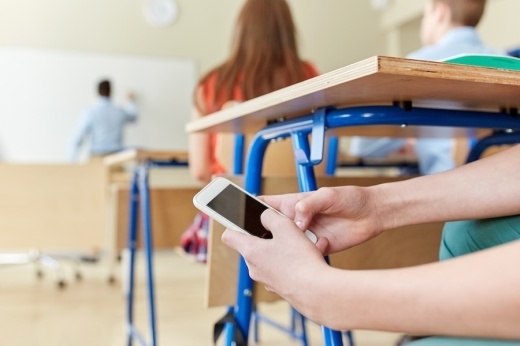The overview
For both FISD and PISD, cellphone use is prohibited during the instructional day unless they’re permitted to use by the teacher, officials said.
For FISD, once a cellphone is confiscated, the teacher will turn the phone into the school principal’s office. The principal will determine whether to return it to the student at the end of the school day, or to contact the parents to pick up the device at the end of the day, according to the FISD student handbook.
Kim Cole, FISD’s assistant superintendent of secondary teaching and learning, said the district is focusing on strict enforcement of its cellphone policy this school year.
Currently, cellphones are confiscated about three to five times a week at FISD, Cole said.
“We have focused on consistent implementation this school year,” Cole said. “We have done this with increased student and parent communication regarding the purpose of the policy, creating a campus culture that values instructional time with staff and students, and administrative focus on cellphone distractions during classroom walkthroughs.”
For PISD, the district uses a three-time system, in which the first time a student’s phone is confiscated, it’s taken to the front office, and the student is able to pick it up at the end of the day. The second time the student’s phone is taken, the parent must pick up the cellphone in the front office. The third time, the parent must pick it up again and pay a $15 fine. PISD’s Deputy Superintendent Kelly Holt said this school year is the first year this policy is being implemented.
Quote of note
“There is extensive research that shows that cellphone use and social media distractions greatly impact the instructional environment and the social-emotional well-being of our students," Cole said.
What else?
Lance Cain, the managing attorney for teacher advocacy organization Association of Texas Professional Educators, or ATPE, said while teachers haven’t filed any claims with ATPE in regard to cellphone policies or misconduct, he said he believes cellphones have become a rising problem for teachers to navigate.
“It boils down to the support that they have from the administration to help give the teachers the resources that they need to enforce any kind of policy that the school district puts into place,” Cain said. “That way they can really focus on the teaching aspect of their job, rather than those sort of outlying things that kind of take away from that.”
Holt said while the cellphone policy is more restrictive for elementary and middle school students, high school teachers are allowed to decide their classroom rules on cellphone use as long as it generally abides by the policy of a cellphone not causing a distraction during the instructional day.
“Every teacher can have a very strict policy, or there are some teachers that are like, ‘I don't mind seeing it, but I don’t want you on it,’” Holt said. “They’re a little more relaxed. There's no one rule for every class in general, but it should not be used during instruction.”What’s next
While PISD is not currently doing anything to change its cellphone policy, FISD is in the process of reviewing the policy to see if the district will need a more restrictive policy, Cole said.
Cole said FISD conducted a staff survey in September and will have another survey in December regarding the consistency of implementation and if there are any barriers within the current policy.
“We are gathering data on the effectiveness of the implementation of our current policy with our administrative classroom walkthroughs,” Cole said. “We are also visiting other Texas campuses with a variety of policies, and learning from their successes and challenges.”





